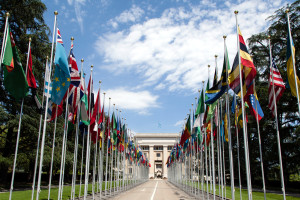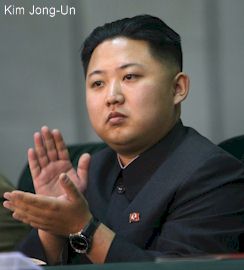UN Recommends Kim Jong-Un Case to ICC, A Look at its Limitations
On December 19th of last year, the General Assembly of the United Nations voted 116-20 (with 53 abstentions) in favor of International Criminal Court investigations on the North Korean regime and prepare for possible charges of crimes against humanity. This technically this move could help pave the way for strong sanctions and even arrests. However, examining how the ICC has handled these kinds of cases in the past – as well as considering the global political situation in which North Korea finds itself – may temper expectations. Since its inception in 2002, the International Criminal Court has had mixed success in prosecuting war criminals around the world. Under the Rome Statute of 2002, which established the ICC, the Court is given a narrow mission wherein it may try those accused of war crimes, crimes against humanity, genocide, and crimes of aggression – but only if the state in which the crimes occur is “unable” or “unwilling” to handle the matter itself. Support for the treaty (whether as a signatory or as a state party) varies greatly by region, with only Europe and South America achieving widespread continental participation. Important non-participants include the United States, Russia, China, India, North Korea, and a number of other Asian and Middle Eastern nations.
In practice, these restrictions have severely reduced the ICC’s ability to effectively prosecute and punish those accused of heinous crimes. During the initial negotiations over the Rome Statute treaty, several states (especially Israel and the United States) were vocally hesitant to potentially subject their own citizens to trial by an international court whose biases and evidentiary standards might not be compatible with those individual states’ positions. Additionally, politicians such as United States Senator Jesse Helms (R-NC) have argued that signing the Rome Statute would give the United Nations “a trapping of sovereignty” and undue power over a state’s citizens.
Perhaps because of these widespread concerns, the Court’s power was restricted to the point of being relatively ineffective. Instead of whisking individuals away at will for international crimes, the Court has struggled with its mission of investigating, arresting, and prosecuting even the worst criminals. Often, those committing genocide, war crimes, crimes against humanity, and crimes of aggression are part of or at least supported by the government of a state. In these cases, states are typically not signatories to the treaty and either cannot or will not provide assistance in bringing the accused to justice.
A prime example of this problem is the case of Omar al-Bashir, who was indicted in 2009 and 2010 for charges including crimes against humanity, war crimes, and genocide while acting as President of Sudan during the Darfur conflict. Despite the range of charges against him, six years after first being indicted he remains not only a free man but the President of Sudan. He has since visited the governments of Chad, Kenya, Djibouti, and Malawi – all parties to the Rome Statute and therefore obligated to arrest him. An African Union decision instructing its member states not to arrest al-Bashir has been cited as justification for ignoring the ICC’s arrest warrants, but questions remain as to that body’s ability to issue such a decision. Calls to the United Nations Security Council seeking punishments against the four countries that have allowed al-Bashir to visit have been unsuccessful, and it appears unlikely that the situation will change in the immediate future.
One of the Court’s brightest success stories has been the capture, prosecution, and sentencing of Congolese warlord Thomas Lubanga Dyilo, the first individual to be arrested under the provisions of the Rome Statute. From 2001 until 2003, he led a political and military group known as the Union of Congolese Patriots (UPC) during the Second Congo War. In 2006, now living in Kinshasa after the end of the war, Lubanga was arrested and eventually brought to trial in The Hague, where he was convicted of three charges against him related to his use of child soldiers as part of the UPC militia group. Lubanga, however, was only sentenced to 14 years in prison, including the 6 years he had already spent awaiting trial, and is due to be released in 2020.
The North Korean case is much more similar to that of al-Bashir than to that of Lubanga. At the time of Lubanga’s arrest, the Second Congo War had been over for three years. Arresting him was comparatively easy once he was no longer the leader of an active militant group engaged in a major conflict. By contrast, both al-Bashir and Kim Jong-un (assuming he would be the primary target of arrest warrants aimed at the North Korean regime) are current leaders of countries that have refused to sign the Rome Statute. Simply put, the ICC barely has power to indict – much less arrest, prosecute, and incarcerate – heads of state, especially when those individuals’ governments have refused to submit their citizens to the ICC process. The ICC cannot succeed in these cases because it is powerless against individuals who wield the power of their governments and those who operate in non-signatory states.


